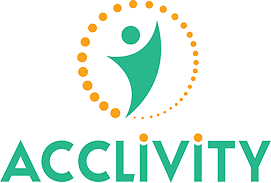In the fast-paced world of academia, the pursuit of knowledge and the pressure to excel can sometimes overshadow the importance of maintaining a healthy work-life balance. As we observe Mental Health Month, it’s crucial to recognize the unique challenges faced by academics and the strategies they can employ to safeguard their mental well-being.
Academia is known for its rigorous demands, from conducting research and publishing papers to teaching and attending conferences. The constant juggling act can take a toll on one’s mental health if not managed effectively. However, achieving a work-life balance is not an insurmountable task. It requires a proactive approach and a commitment to self-care.
One invaluable resource that academics often overlook is career coaching. Career coaches specialize in guiding individuals through the complexities of academia, offering personalized strategies for career advancement and personal growth. Whether you’re feeling stuck in your current position or unsure about the next steps in your academic journey, a career coach can provide the guidance and support you need to thrive.
Here are some practical strategies for achieving work-life balance in academia:
- Set Boundaries: Establish clear boundaries between work and personal life. Designate specific times for work-related tasks and make a conscious effort to disconnect when off-duty. Remember, it’s okay to say no to additional commitments if they encroach upon your personal time.
- Prioritize Self-Care: Make self-care a non-negotiable aspect of your routine. Schedule regular breaks throughout the day, engage in activities that bring you joy and relaxation, and prioritize adequate sleep and nutrition. Taking care of your physical and mental well-being is essential for long-term success.
- Seek Support: Don’t hesitate to reach out for support when needed. Whether it’s discussing challenges with colleagues, seeking counseling services provided by your institution, or engaging with a mentor or coach, having a support system in place can make a significant difference in managing stress and navigating difficult situations.
- Practice Mindfulness: Incorporate mindfulness practices into your daily life to cultivate a sense of calm and presence. Activities such as meditation, deep breathing exercises, and mindful walking can help reduce stress and enhance overall well-being.
- Embrace Flexibility: Embrace flexibility in your approach to work. Recognize that productivity does not always equate to the number of hours spent at the desk. Be open to alternative work arrangements, such as telecommuting or flexible scheduling, that allow you to better balance work and personal commitments.
Achieving work-life balance in academia is a journey that requires intentionality and self-awareness. By prioritizing mental health awareness and implementing practical strategies, academics can cultivate a more fulfilling and sustainable career. Remember, you don’t have to navigate this journey alone. Consider investing in career coaching to gain valuable insights and support tailored to your unique needs and aspirations.
If you’re ready to take proactive steps towards achieving work-life balance and advancing your career in academia, consider scheduling a call with Dr. Loren M. Hill today. Your well-being and success are worth investing in.

